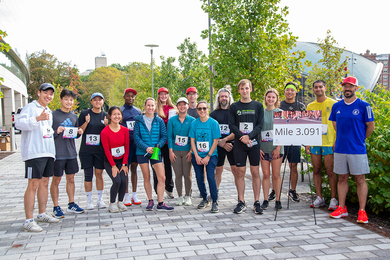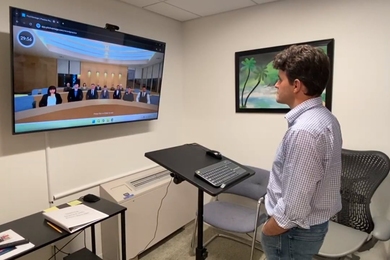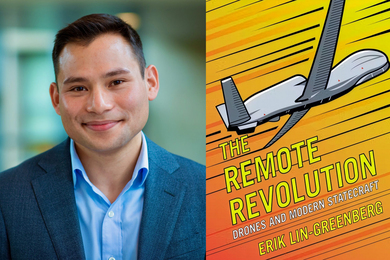Four first-year graduate students have been awarded U.S. Department of Energy (DOE) Computational Science Graduate Fellowships to support their research. Fellows receive full tuition and fees plus an annual stipend and academic allowance, renewable for up to four years. Less than 5 percent of applicants are chosen for the fellowship each year.
The computational science fellowship program is administered by the Krell Institute and funded by the DOE’s Office of Science and the National Nuclear Security Administration. Each year, the program grants fellowships to support doctoral students who focus on using high-performance computers to solve complex science and engineering problems of national importance. Recipients must complete courses in a scientific or engineering discipline, plus computer science and applied mathematics. They also must do a three-month research practicum at one of 21 DOE laboratories or sites across the country.
Four MIT students were awarded DOE Computational Science Graduate Fellowships for 2017.
Peter J. Ahrens is a graduate student in the Department of Electrical Engineering and Computer Science, and his research focuses on using computer science to improve numerical software for scientists. Writing performance engineered code is difficult because one must optimize for each combination of numerical operation, scientific application, and available hardware, so Ahrens creates algorithms and software which can programmatically generate optimized code for each use case. He also uses code generation within the Julia programming language to write novel interfaces that make it easier to use numerical software.
Miriam Rathbun is a graduate student in the Department of Nuclear Science and Engineering and a member of Benoit Forget’s research group. Rathbun’s computational reactor physics research focuses on high-fidelity modeling of nuclear reactors. In particular, she is interested in multiphysics problems where several physical phenomena influence each other. Multiphysics research seeks to create a platform for solvers to be more compatible with each other and to make simulations that more accurately predict reality.
Kevin Silmore of the Department of Chemical Engineering studies the dynamics and self-assembly of anisotropic colloidal particles, or particles that are not spherical. There are countless examples of particles that either occur in nature or are engineered in the laboratory that are not spherical. One prime example is carbon nanotubes, which exhibit many interesting properties and can be used in applications ranging from biosensors to energy harvesters. A better understanding of the physical processes that govern the behavior of such particles could therefore help inform the design of advanced materials with tunable electronic, optical, or mechanical properties.
Annie Yuan Wei, a student in the Department of Physics, intends to work in quantum information quantum algorithms, and quantum computing. Her research involves thinking about how quantum mechanics relates to information processing and how researchers can come up with ways to do things with quantum computers that might not be possible today.
Since it was launched in 1991, the fellowship program has supported 436 students at more than 65 universities. These students are among 20 first-year recipients, bringing the total number of current fellows to 79 in 14 states.
For more information on the DOE Computational Science Graduate Fellowships, please visit the Krell Institute website.







